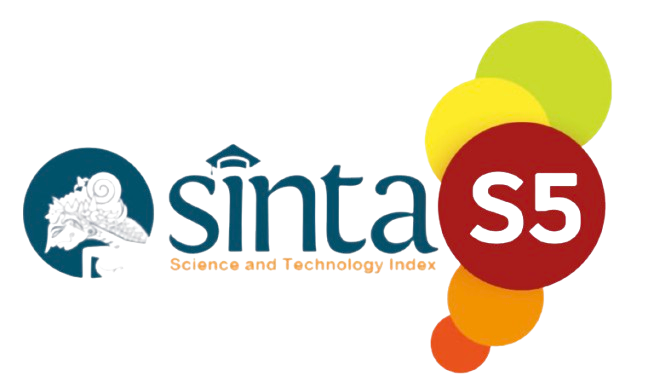Pre-Service EFL Teachers’ Perspectives on AI Integration in Indonesian Urban Schools
DOI:
https://doi.org/10.52217/r4tkmv84Keywords:
AI integration, EFL, pre-service teachers, teacher education, urban schoolsAbstract
This study explores the perspectives of pre-service EFL teachers on integrating Artificial Intelligence (AI) tools in urban classrooms in Indonesia. As AI increasingly influences language teaching and learning, it is important to understand how future teachers perceive its role, benefits, and challenges in their professional practice. Employing a qualitative descriptive design, the study collected data through an online questionnaire completed by seventy pre-service EFL teachers and follow-up semi-structured interviews with twenty volunteers. The findings revealed that participants generally held positive views of AI integration, highlighting its potential to enhance student motivation, provide immediate feedback, and support differentiated instruction for diverse learners in urban settings. At the same time, their confidence in applying AI remained moderate, reflecting limited training and practical experience. Participants also expressed concerns about infrastructural barriers, institutional support, and ethical issues such as plagiarism and over-reliance on AI outputs. These results suggest that while pre-service EFL teachers see AI as a valuable pedagogical tool, they acknowledge the need for critical awareness and proper preparation. The study implies that teacher education programs should embed AI literacy, pedagogical training, and ethical guidance into curricula to better equip future teachers for AI-enhanced classrooms.
References
Akgun, S., & Greenhow, C. (2021). Artificial intelligence in education: Addressing ethical challenges in K-12 settings. AI and Ethics 2021 2:3, 2(3), 431–440. https://doi.org/10.1007/S43681-021-00096-7
Al-Abdullatif, A. M. (2025). Auditing AI Literacy competency in K–12 education: The role of awareness, ethics, evaluation, and use in human–machine cooperation. Systems, 13(6), 1–19. https://doi.org/10.3390/systems13060490
Braun, V., & Clarke, V. (2021). Thematic analysis: A practical guide. Sage Publications.
Creswell, J. W., & Poth, C. N. (2018). Qualitative inquiry and research design: Choosing among five approaches. Sage Publications.
Darwin, Rusdin, D., Mukminatien, N., Suryati, N., Laksmi, E. D., & Marzuki. (2024). Critical thinking in the AI era: An exploration of EFL students’ perceptions, benefits, and limitations. Cogent Education, 11(1), 1–18. https://doi.org/10.1080/2331186X.2023.2290342
Ding, A.-C. E., Shi, L., Yang, H., & Choi, I. (2024). Enhancing teacher AI literacy and integration through different types of cases in teacher professional development. Computers and Education Open, 6, 1–13. https://doi.org/10.1016/j.caeo.2024.100178
George, B., & Wooden, O. (2023). Managing the Strategic Transformation of Higher Education through Artificial Intelligence. Administrative Sciences, 13(9), 196. https://doi.org/10.3390/admsci13090196
Gerlich, M. (2025). AI tools in society: Impacts on cognitive offloading and the future of critical thinking. Societies, 15(1), 1–28. https://doi.org/10.3390/soc15010006
Grassini, S. (2023). Shaping the Future of Education: Exploring the Potential and Consequences of AI and ChatGPT in Educational Settings. Education Sciences, 13(7), 692–705. https://doi.org/https://doi.org/10.3390/educsci13070692
Hastomo, T., Widiati, U., Ivone, F. M., Zen, E. L., Hasbi, M., & Khulel, B. (2025). AI-powered conversational agents and intercultural learning: Insights from Indonesian EFL students. Intercultural Communication Education, 8(1), 103217. https://doi.org/10.29140/ice.v8n1.103127
Jeon, J. (2024). Exploring AI chatbot affordances in the EFL classroom: young learners’ experiences and perspectives. Computer Assisted Language Learning, 37(1–2), 1–26. https://doi.org/10.1080/09588221.2021.2021241
Kerr, R. C., & Kim, H. (2025). From Prompts to Plans: A Case Study of Pre-Service EFL Teachers’ Use of Generative AI for Lesson Planning. English Teaching, 80(1), 95–118. https://doi.org/10.15858/engtea.80.1.202503.95
Lee, S., Jeon, J., & Choe, H. (2025). Generative AI (GenAI) and pre-service teacher agency in ELT. ELT Journal, 79(2), 287–296. https://doi.org/10.1093/elt/ccaf005
Long, D., Roberts, J., Magerko, B., Holstein, K., DiPaola, D., & Martin, F. (2023). AI literacy: Finding common threads between education, design, policy, and explainability. Extended Abstracts of the 2023 CHI Conference on Human Factors in Computing Systems, 1–6. https://doi.org/10.1145/3544549.3573808
Mandasari, B., Basthomi, Y., Hastomo, T., Afrianto, Hamzah, I., & Aminatun, D. (2025). The snapshots of Indonesian pre-service English teachers’ perspectives on integrating technology-based tools to rural schools. Voices of English Language Education Society, 9(1), 42–57. https://doi.org/10.29408/veles.v9i1.27965
Marzuki, Widiati, U., Rusdin, D., Darwin, & Indrawati, I. (2023). The impact of AI writing tools on the content and organization of students’ writing: EFL teachers’ perspective. Cogent Education, 10(2), 1–17. https://doi.org/10.1080/2331186X.2023.2236469
Narayan, S. (2024). Awareness and familiarity with AI writing tools among media students. LinguaEducare: Journal of English and Linguistic Studies, 1(1), 39–50. https://journal.ciptapustaka.com/index.php/LEC/article/view/5
Nazaretsky, T., Ariely, M., Cukurova, M., & Alexandron, G. (2022). Teachers’ trust in AI-powered educational technology and a professional development program to improve it. British Journal of Educational Technology, 53(4), 914–931. https://doi.org/10.1111/bjet.13232
Ozdemi, N., & Mede, E. (2024). Exploring in-service EFL teachers’ readiness for the generative AI age. International Journal of Research in Teacher Education, 15(4), 60–77. https://doi.org/10.29329/ijrte.2024.1104.04
Pudasaini, S., Miralles-Pechuán, L., Lillis, D., & Llorens Salvador, M. (2025). Survey on AI-Generated Plagiarism Detection: The Impact of Large Language Models on Academic Integrity. Journal of Academic Ethics, 23(3), 1137–1170. https://doi.org/10.1007/s10805-024-09576-x
Shikun, S., Grigoryan, G., Huichun, N., & Harutyunyan, H. (2024). AI chatbots: Developing English language proficiency in EFL classroom. Arab World English Journal, 1(1), 292–305. https://doi.org/10.24093/awej/ChatGPT.20
Silitonga, L. M., Hawanti, S., Aziez, F., Furqon, M., Zain, D. S. M., Anjarani, S., & Wu, T. T. (2023). The impact of AI chatbot-based learning on students’ motivation in English writing classroom. Lecture Notes in Computer Science (Including Subseries Lecture Notes in Artificial Intelligence and Lecture Notes in Bioinformatics), 14099 LNCS, 542–549. https://doi.org/10.1007/978-3-031-40113-8_53
Slamet, J. (2024). Potential of ChatGPT as a digital language learning assistant: EFL teachers’ and students’ perceptions. Discover Artificial Intelligence, 4(1), 46. https://doi.org/10.1007/s44163-024-00143-2
Taşçı, S., & Tunaz, M. (2024). Opportunities and challenges in AI-assisted language teaching: Perceptions of pre-service EFL teachers . Araştırma ve Deneyim Dergisi, 9(2), 74–83. https://doi.org/10.47214/adeder.1575897
Trinovita, D., Nurchurifiani, E., Hastomo, T., Andewi, W., & Hasbi, M. (2025). Exploring the Influence of Generative AI on Self-Regulated Learning: A Mixed-Methods Study in the EFL Context. Jurnal Iqra’ : Kajian Ilmu Pendidikan, 10(2), 301–316. https://doi.org/10.25217/ji.v10i2.6389
Williyan, A., Fitriati, S. W., Pratama, H., & Sakhiyya, Z. (2024). AI as co-creator: Exploring Indonesian EFL teachers’ collaboration with AI in content development. Teaching English With Technology, 2024(2), 5–21. https://doi.org/10.56297/vaca6841/LRDX3699/RZOH5366
Yetkin, R., & Özer-Altınkaya, Z. (2024). AI in the language classroom: Insights from pre-service English teachers. E-Learning and Digital Media. https://doi.org/10.1177/20427530241267011
Zhu, S., Li, Q., Yao, Y., Li, J., & Zhu, X. (2025). Improving writing feedback quality and self-efficacy of pre-service teachers in Gen-AI contexts: An experimental mixed-method design. Assessing Writing, 66, 100960. https://doi.org/10.1016/j.asw.2025.100960
Zulianti, H., Hastuti, H., Nurchurifiani, E., Hastomo, T., Maximilian, A., & Ajeng, G. D. (2024). Enhancing novice EFL teachers’ competency in AI-powered tools through a TPACK-based professional development program. World Journal of English Language, 15(3), 117–131. https://doi.org/10.5430/wjel.v15n3p117
Downloads
Published
Issue
Section
License
Copyright (c) 2025 IJLHE: International Journal of Language, Humanities, and Education

This work is licensed under a Creative Commons Attribution-NonCommercial 4.0 International License.














